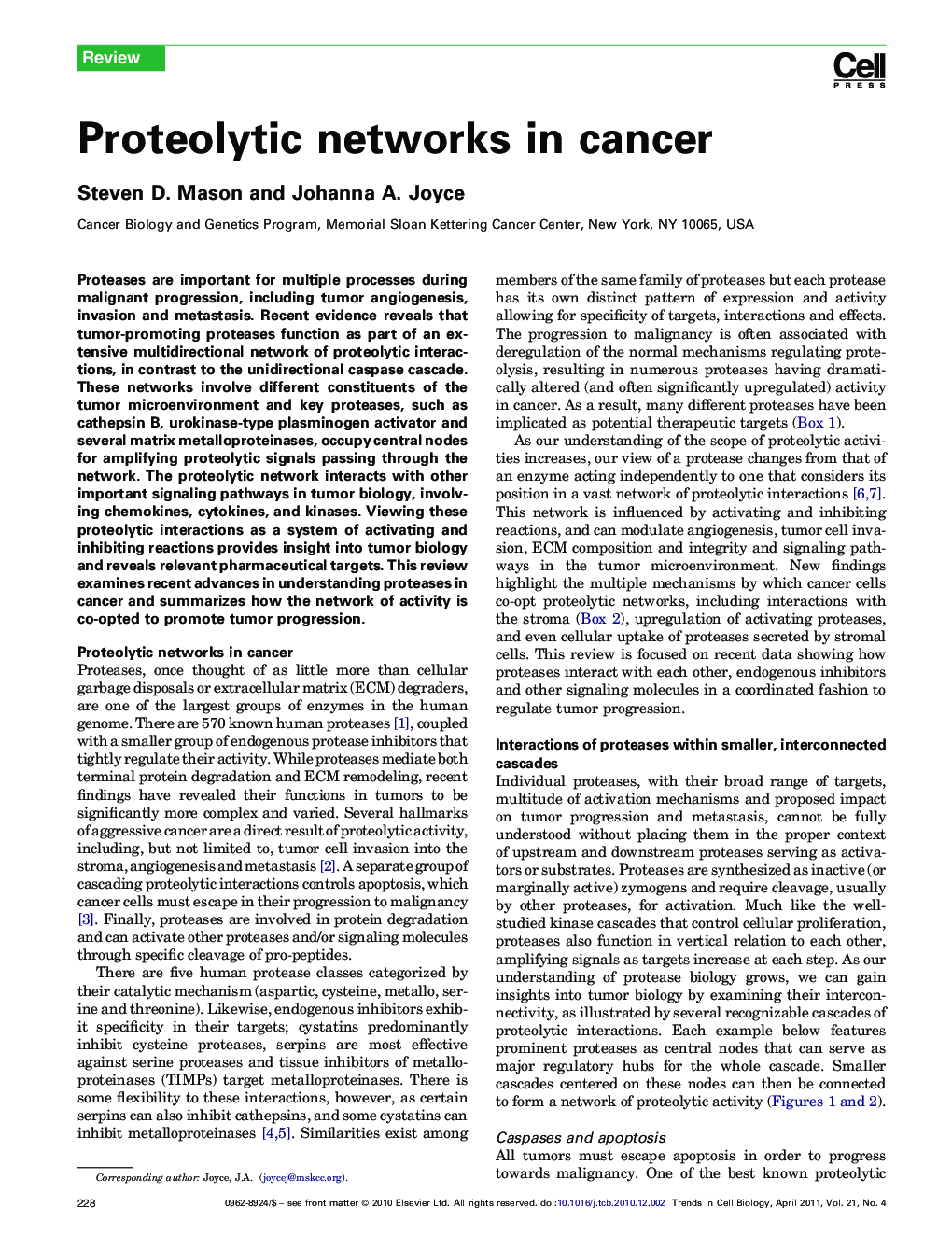| Article ID | Journal | Published Year | Pages | File Type |
|---|---|---|---|---|
| 2204806 | Trends in Cell Biology | 2011 | 10 Pages |
Proteases are important for multiple processes during malignant progression, including tumor angiogenesis, invasion and metastasis. Recent evidence reveals that tumor-promoting proteases function as part of an extensive multidirectional network of proteolytic interactions, in contrast to the unidirectional caspase cascade. These networks involve different constituents of the tumor microenvironment and key proteases, such as cathepsin B, urokinase-type plasminogen activator and several matrix metalloproteinases, occupy central nodes for amplifying proteolytic signals passing through the network. The proteolytic network interacts with other important signaling pathways in tumor biology, involving chemokines, cytokines, and kinases. Viewing these proteolytic interactions as a system of activating and inhibiting reactions provides insight into tumor biology and reveals relevant pharmaceutical targets. This review examines recent advances in understanding proteases in cancer and summarizes how the network of activity is co-opted to promote tumor progression.
